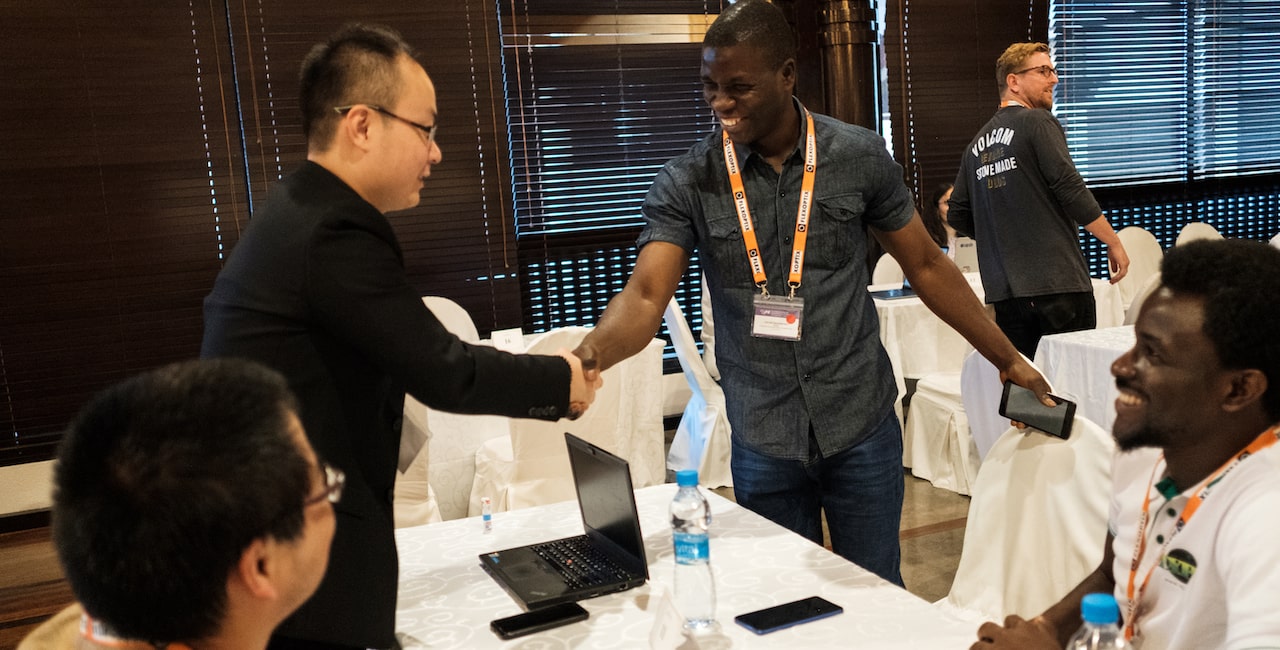The first-ever Central African Peering Forum comes at a defining moment for Internet peering and interconnection. In the midst of the COVID-19 pandemic, countries have implemented measures to restrict people from moving from their homes, while only allowing essential movements and services.
But life cannot stop.
Kids still need to study and attend school. People still need to access financial services, conduct personal and business transactions, access government services, pay their taxes, and access health services. Most importantly, people need to access accurate and timely information. But now these services must be provided at a larger scale – via reliable Internet infrastructure. Moreover, some of this content and these services do not exist in digital format. They need to be created, sometimes in the language of local communities.
COVID-19 has uncovered gaps, missing elements, and key challenges, which need to be addressed so that life can smoothly transition to the new normal. Failing to address these challenges may result in severe socioeconomic consequences.
We are now a few months down the path since lockdown measures have been implemented in most countries. It is time to reflect on the lessons learnt so far, with respect to the reliability of the Internet infrastructure, local content infrastructure development, last mile infrastructure, and on possible policy interventions that could help address the gaps. Are we building resilient Internet infrastructure that can sustain and even thrive in crisis times?
This question has inspired the first Central African Peering Forum. The forum is dedicated to helping people connect to faster and more reliable Internet though peering.
Peering is the voluntary interconnection of two Internet networks for the purpose of exchanging Internet traffic, without going through an intermediary network. Peering takes place at Internet Exchange Points (IXPs). It helps keep domestic Internet traffic local by offloading traffic from expensive international links onto affordable local links. As a result, Internet Service Providers can offer a better experience and save costs.
The Central African Peering Forum will take place on 27 May.
If you’re dedicated to building the Internet in Africa we would love for you to attend so we can focus on solutions together. Whether you’re a business owner, technology expert, or user, your views count.
Beyond the “traditional” peers like Internet Service Providers, there are other network operators that can take advantage of Internet peering. This includes content service providers like newspapers and entertainment, content delivery networks (CDNs), financial service providers like banks, government e-service platforms, etc. We believe this virtual event will greatly benefit all of the participants, both through the quality of the presentations and the discussions that will take place.
We can’t wait to see you join us online!
Regional Solutions from Local Challenges
It’s our hope the Central African Peering Forum will shed light on the particular challenges the central African region is facing during these challenging times – and develop real solutions. Some of these challenges are common across the region, and perhaps globally. In many cases, a solution exists and could be applied with little adaptation to the local context.
Let’s look at one example: Education
How can local infrastructure (local content and hosting infrastructure development and last mile access infrastructure ) be developed to take care of local needs?
What is the link between the educational/academic content and the homes where the kids are staying? Moreover, what kind of equipment do students use to access that content? Are the current Internet bundles (volume-based packages) suitable and affordable for such needs?
On the other side, having the adequate infrastructure in place is not enough: tutors (i.e., parents and caregivers) need to be educated, sensitized, and trained on how to educate kids in this new environment.
Using our shared experience, we hope to draw up recommendations and try to address those problems with policymakers, regulatory authorities, who are in charge of consumer protection, and local players, such as Internet service providers, data center operators, and content and hosting providers across the region.
Your Perspective Counts
Wherever you are in the Central Africa region, please register and give us your perspective, ideas, and recommendations! It’s important to have different local perspectives at the forum to develop solutions that last.
Discussions will revolve around Internet infrastructure, Internet Exchange Points (IXP), last mile access infrastructure, local content and hosting infrastructure (data centers), regulations, and policies.
This forum welcomes everyone: consumers, end-users, and direct and indirect players in the Internet ecosystem. Together we can come up with strong recommendations for our region. Recommendations that make a real difference.
Join Us!
Image from 2019 African Peering and Interconnection Forum ©Nyani Quarmyne/Internet Society.

